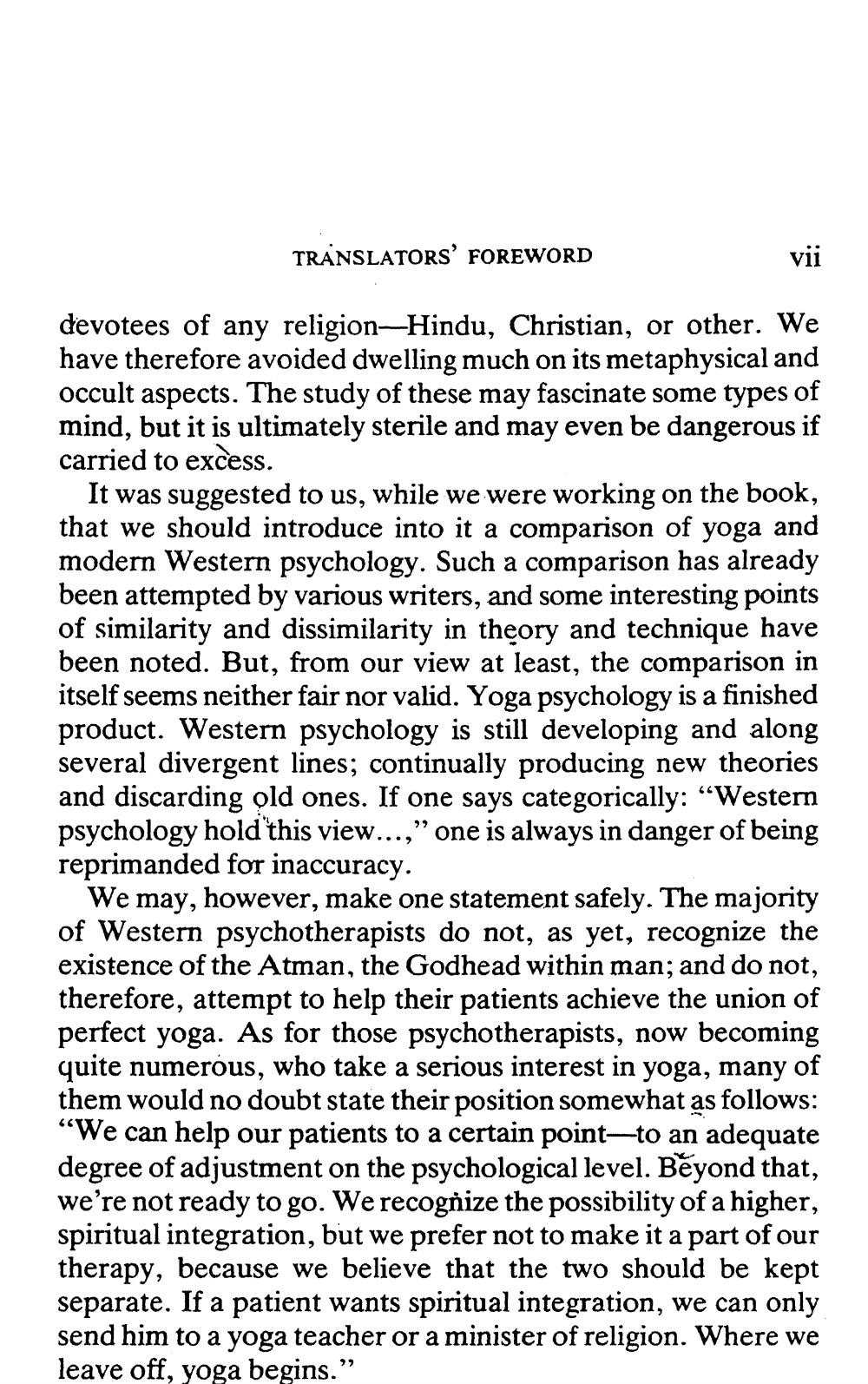________________
TRANSLATORS' FOREWORD
vii
devotees of any religion-Hindu, Christian, or other. We have therefore avoided dwelling much on its metaphysical and occult aspects. The study of these may fascinate some types of mind, but it is ultimately sterile and may even be dangerous if carried to excess.
It was suggested to us, while we were working on the book, that we should introduce into it a comparison of yoga and modern Western psychology. Such a comparison has already been attempted by various writers, and some interesting points of similarity and dissimilarity in theory and technique have been noted. But, from our view at least, the comparison in itself seems neither fair nor valid. Yoga psychology is a finished product. Western psychology is still developing and along several divergent lines; continually producing new theories and discarding old ones. If one says categorically: “Western psychology hold this view...," one is always in danger of being reprimanded for inaccuracy.
We may, however, make one statement safely. The majority of Western psychotherapists do not, as yet, recognize the existence of the Atman, the Godhead within man; and do not, therefore, attempt to help their patients achieve the union of perfect yoga. As for those psychotherapists, now becoming quite numerous, who take a serious interest in yoga, many of them would no doubt state their position somewhat as follows: “We can help our patients to a certain point—to an adequate degree of adjustment on the psychological level. Beyond that, we're not ready to go. We recognize the possibility of a higher, spiritual integration, but we prefer not to make it a part of our therapy, because we believe that the two should be kept separate. If a patient wants spiritual integration, we can only send him to a yoga teacher or a minister of religion. Where we leave off, yoga begins.”




